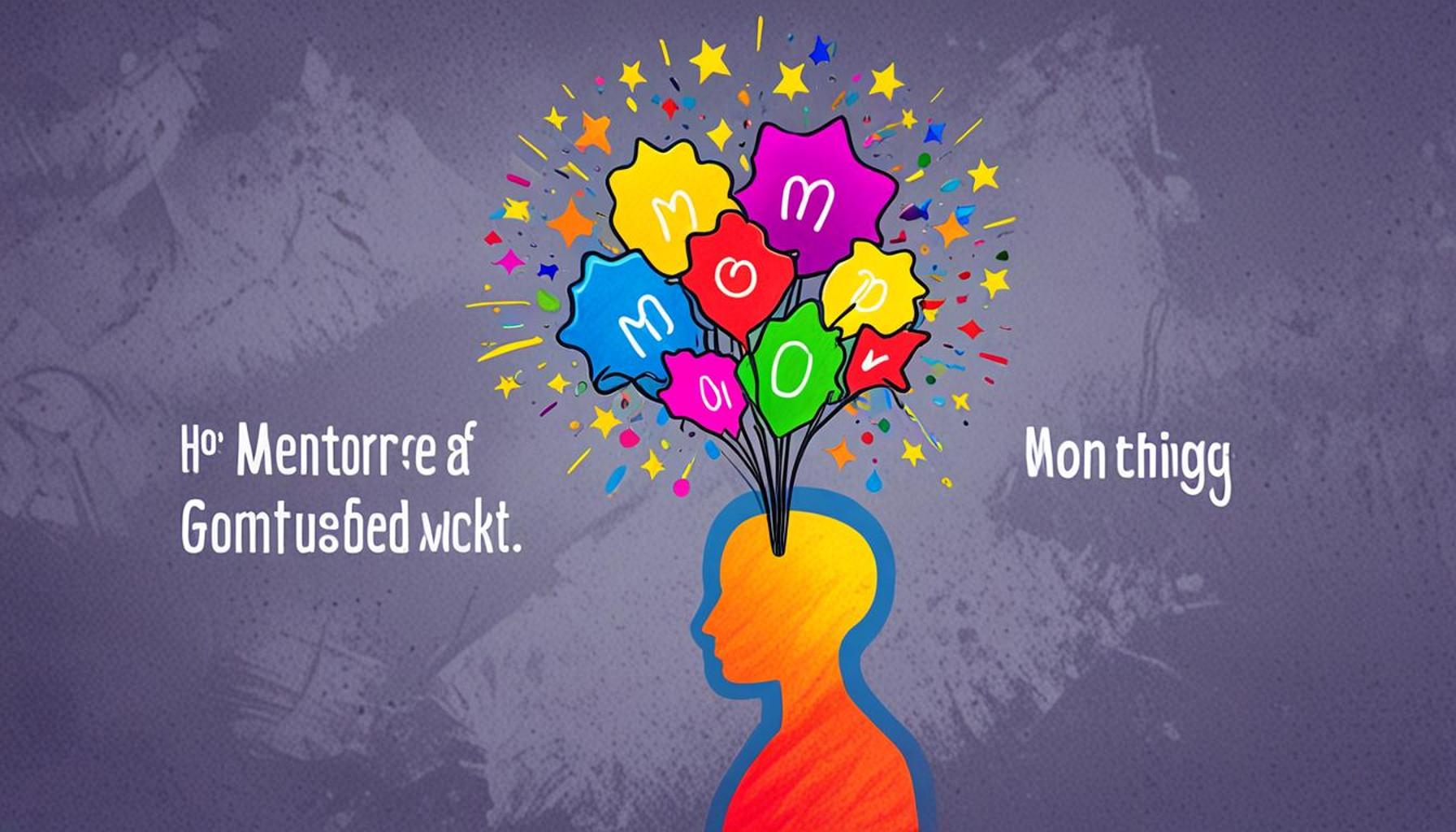The Importance of Mentor Feedback in Developing a Growth Mindset

The Importance of Embracing Mentor Feedback
In the dynamic landscape of Nigeria’s job market, which is frequently shaped by technological advancements and global shifts, mastering the ability to adapt and evolve is paramount. A growth mindset enables individuals to interpret setbacks not as dead ends but as stepping stones toward their ultimate goals. This mindset is essential for success, especially in a competitive environment where continuous learning is not just beneficial; it is necessary for survival and advancement.
One of the most effective means of fostering this growth mindset is through mentor feedback. Mentorship transcends traditional guidance; it offers insights that are critical for both personal and professional development. This interaction can take on various forms, from formal mentorship programs in corporate settings to informal guidance from respected community leaders or family members. The significance of mentor feedback can’t be overstated, as it plays a crucial role in shaping one’s career and character.
Key Benefits of Mentor Feedback
- Constructive Criticism: Mentors possess a wealth of experience, enabling them to provide perspectives that challenge your current ways of thinking. For instance, if a young entrepreneur in Lagos seeks advice on a business strategy, a mentor might point out flaws in their approach and suggest alternative strategies that have proven successful in similar markets.
- Encouragement: Positive reinforcement from mentors can bolster an individual’s resilience and motivation. This encouragement is especially important in Nigeria, where young professionals often face societal pressures and economic uncertainties. A mentor’s belief in an individual’s potential can instill confidence and inspire action.
- Goal Setting: Mentors assist in defining clear, achievable goals tailored to individual strengths and weaknesses. For example, a mentee aspiring to excel in the tech industry can benefit from a mentor’s guidance on specific skills to develop, such as coding or project management, thus creating a roadmap for success.
In Nigeria, mentorship can take many forms, from structured programs offered by organizations to spontaneous relationships formed through networking events or community gatherings. Engaging with mentors not only prepares individuals to tackle personal challenges but also enhances their ability to contribute positively to their surroundings. This is crucial in a country where collective progress is often tied to individual success.
As we navigate our careers and lives, it is imperative to remember that learning is a lifelong journey. The continuous cycle of receiving and acting on feedback nurtures our capacity for growth. Ultimately, the richness of mentor feedback lies in its ability to guide us through the complexities of both personal and professional realms, ensuring that our experiences not only lead to individual success but also contribute to the broader community.
CHECK OUT: Click here to explore more
Unlocking Potential Through Constructive Mentor Feedback
In the journey towards personal and professional growth, one of the most pivotal tools at our disposal is mentor feedback. This feedback serves not only to guide but also to reshape our perceptions and approaches to challenges. For many Nigerians, especially youths navigating the complexities of modern careers, the wisdom imparted by experienced mentors can be transformative. It empowers individuals to shift from a fixed mindset—where abilities are viewed as static—to a growth mindset, characterized by the belief that abilities can be developed through dedication and hard work.
Significantly, one of the initial aspects where mentor feedback proves advantageous is in fostering self-awareness. Many individuals, particularly in a traditional setting like Nigeria, may not fully grasp their strengths or weaknesses. A mentor can help identify these critical areas and provide constructive criticism that pushes mentees to reflect on their skills. This reflection often leads to a realization of untapped potential, motivating individuals to take actionable steps towards improvement.
- Perspective Shift: Through their experiences, mentors offer unique perspectives that mentees may not have considered. This is particularly vital in Nigeria’s fast-evolving job market, where new technologies continuously reshape industries. For example, a mentor in the agricultural sector could guide a young professional on the importance of integrating technology like precision farming, encouraging them to think beyond traditional farming methods.
- Encouraging Innovation: Mentors not only provide feedback on existing ideas but also inspire innovation. In fostering a culture of creativity, mentors can motivate mentees to explore new concepts— be it initiating a startup or developing community projects. This encouragement can play a crucial role in a country where entrepreneurship is increasingly seen as a pathway to economic resilience.
- Building a Support Network: Part of receiving feedback from mentors also includes gaining access to their networks. Mentors can introduce their mentees to industry contacts and relevant resources that can pave the way for collaborations and opportunities. For instance, a mentorship connection with a senior executive in a tech firm could lead to internships or job openings that would otherwise remain inaccessible.
In essence, mentor feedback acts as a catalyst for personal development, equipping individuals with the mindset necessary to embrace challenges head-on. The process not only nourishes growth but also cultivates a resilient attitude that is increasingly essential in Nigeria’s competitive landscape. By actively seeking and valuing feedback from mentors, individuals take a significant step in fostering a culture of learning—one that prioritizes resilience, adaptability, and ultimately, success.
The Role of Mentor Feedback in Fostering Resilience
Mentor feedback is not just about identifying weaknesses; it plays a crucial role in building resilience, a key characteristic of a growth mindset. When mentors provide constructive criticism, they encourage individuals to view challenges as opportunities for learning rather than obstacles. This perspective shift is essential for developing a growth mindset, as it cultivates a belief that abilities can be developed through dedication and hard work.Furthermore, mentors who actively engage in the feedback process create a safe space for mentees to explore their capabilities. Mentees feel empowered to take risks and seek new experiences, knowing they have a supportive figure to guide them. This environment fosters a culture of open communication, whereby mentees learn to embrace feedback as a tool for personal and professional growth.Another significant advantage of mentor feedback is the personalized approach it offers. Unlike generic advice found in self-help books, mentor feedback is tailored to the mentee’s unique circumstances and aspirations. This individualized attention ensures that feedback is not only relevant but also actionable, which can significantly enhance the development of a growth mindset.Incorporating positive reinforcement into the feedback process further amplifies its impact. Mentors who celebrate small successes and acknowledge improvements instill a sense of achievement within their mentees. This reinforcement is instrumental in motivating individuals to persevere, pushing them to reach for higher goals as they progress on their growth journey.In essence, the interdependent relationship between mentor feedback and resilience is fundamental in fostering a growth mindset. As mentees embrace feedback and learn to value it, they naturally develop a more adaptive and resilient approach to challenges. This transformational experience can lead to profound changes, enabling individuals to thrive in various aspects of their lives.
| Category | Description |
|---|---|
| Resilience Building | Mentor feedback helps mentees view challenges as learning opportunities. |
| Personalized Guidance | Tailored feedback offers actionable advice relevant to mentees’ unique journeys. |
| Positive Reinforcement | Celebrating small successes motivates mentees to reach higher goals. |
As the dynamics of mentor-mentee relationships continue to evolve, the importance of mentor feedback in nurturing a growth mindset becomes increasingly evident. Emphasizing resilience, personalization, and positive reinforcement, mentors can unlock the full potential of their mentees and steer them toward a future filled with opportunities for growth and success.
YOU MAY ALSO LIKE: Read read another article
Cultivating Resilience Through Continuous Learning
One of the most profound impacts of mentor feedback is its ability to cultivate resilience in individuals who aspire to develop a growth mindset. In a rapidly changing world, where challenges are inevitable, learning to bounce back from setbacks is crucial. Mentors play a vital role in guiding their mentees through failures by reframing experiences as opportunities for learning rather than indicators of inadequacy. This reframing helps mentees understand that failure is not a definitive endpoint but a stepping stone toward greater achievements.
In Nigeria’s educational landscape, for instance, students often face high-stakes examinations that can obscure their long-term potential. A mentor can provide reassurance and constructive feedback, helping students recognize that a single test does not define their capabilities. This perspective can diminish performance anxiety and motivate students to adopt a continuous improvement approach to their studies.
- Fostering Effective Problem-Solving Skills: Feedback from mentors can enhance an individual’s critical thinking and problem-solving abilities. By guiding mentees on how to tackle challenges creatively, mentors encourage a proactive attitude. For example, a mentor in the tech industry might present a coding error as an opportunity for deeper learning, urging the mentee to explore different debugging techniques. This not only builds crucial skills but also creates an eagerness to face challenges head-on.
- Bridging the Gap Between Theory and Practice: In many Nigerian academic institutions, there exists a gap between theoretical knowledge and practical application. Mentors bring real-world insights that can illuminate how theory translates into practice. For instance, a young graduate in engineering could benefit immensely from a mentor who shares experiences from the field, offering feedback on common pitfalls and best practices. By understanding the practical applications of their studies, mentees are empowered to tackle real-life challenges with greater confidence.
- Cultivating Emotional Intelligence: Beyond cognitive skills, mentor feedback is integral in developing emotional intelligence. Understanding one’s emotions, as well as recognizing and influencing the emotions of others, is essential in both individual and collaborative success. Feedback focused on interpersonal skills—such as communication and teamwork—can enhance a mentee’s capacity to navigate Nigeria’s diverse workplaces. A mentor might offer feedback on negotiation strategies, enabling a young professional to build stronger relationships and collaborate effectively with colleagues from varied backgrounds.
A study by the International Journal for Mentoring & Coaching in Education highlights that effective feedback can also boost a mentee’s motivation, leading to improved overall performance. This study reveals that those who actively seek feedback not only experience accelerated growth but also report higher job satisfaction levels. For Nigerian youths aiming for career stability in an ever-evolving economic landscape, the benefits of mentor feedback can translate into tangible career advancements.
Furthermore, the significance of regular feedback becomes evident in the way it encourages a culture of continuous learning. As individuals receive and act upon feedback, they develop a greater appetite for lifelong learning, an essential trait for thriving in today’s job market. In a society increasingly valuing adaptability, this openness becomes a key ingredient for success.
YOU MAY ALSO LIKE: Read read another article
Encapsulating the Value of Mentor Feedback
In conclusion, the role of mentor feedback in nurturing a growth mindset cannot be overstated. It serves as a catalyst for personal and professional development, especially in a dynamic environment like Nigeria, where the landscape is simultaneously rich yet challenging. By providing insights that foster resilience, problem-solving skills, and emotional intelligence, mentors equip their mentees with the tools necessary to navigate the complexities of life and work.
This feedback, which reframes failure as a learning opportunity, helps individuals to not only confront challenges but also embrace a culture of continuous learning. As students and young professionals engage with their mentors, the practical application of theoretical knowledge becomes evident, bridging the often disjointed gap between classroom learning and real-world skills. Furthermore, this ongoing interaction paves the way for a deeper understanding of workplace dynamics—essential for thriving in Nigeria’s diverse employment landscape.
As the evidence suggests, those who actively seek and incorporate mentor feedback report enhanced motivation and improved performance. The imperative for Nigerian youths to harness these insights is clearer than ever, given the ever-evolving job market that emphasizes adaptability and lifelong learning. In fostering these essential qualities through feedback, mentors do not just shape individual destinies; they contribute to building a more resilient and innovative future for society as a whole. For anyone striving for success, the journey begins with the invaluable guidance of a mentor.



